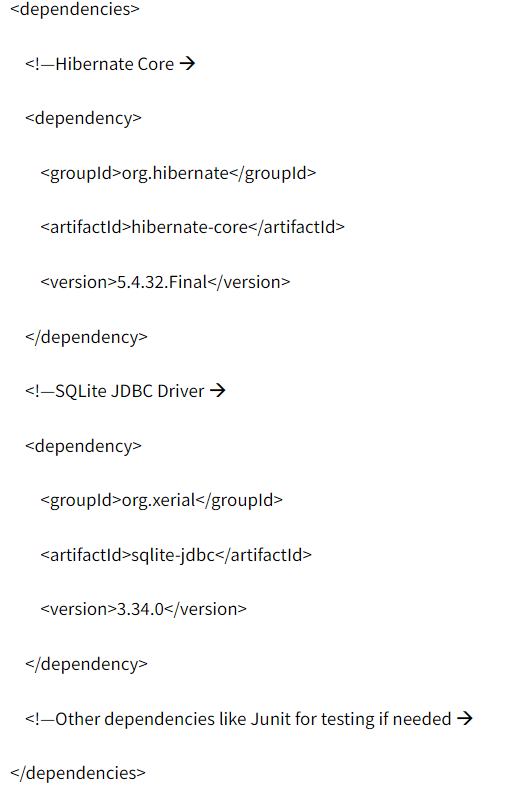How to use SQL Alchemy to organize data in descending order?
I am currently engaged in a particular task that is related to developing a web-based application that can display a list of recent blog posts. The posts are stored in a particular Database and each post has a “published_date” Column. I want to display the most recent post at the top of the list. How can I write an SQL query that can retrieve all blog posts and order them by their published date in descending order by using SQLAlchemy?
In the context of SQL, you can order the query results by a Column in the order of descending by using the SQL Alchemy by using the desc function from the SQLAlchemy module. This particular function would allow you to specify that the results should be sorted in descending order based on the specified column.
In the context of a web-based application displaying recent blog posts, you can certainly create a query to retrieve all the blog posts and then order them by their published_date Column in descending order. This desc function is passed to the order_by method of the query object.
Here is the detailed code example given below:-
# Import necessary modules from SQLAlchemy
From sqlalchemy.orm import sessionmaker
From sqlalchemy import create_engine, desc
From sqlalchemy.ext.declarative import declarative_base
From sqlalchemy import Column, Integer, String, DateTime# Define the base class for the declarative model
Base = declarative_base()
# Define the BlogPost model
Class BlogPost(Base):
__tablename__ = ‘blog_posts’
Id = Column(Integer, primary_key=True)
Title = Column(String)
Content = Column(String)
Published_date = Column(DateTime)
# Create an engine that stores data in the local directory’s sqlite database file
Engine = create_engine(‘sqlite:///blog.db’) # Replace with your actual database URL
# Create all tables in the engine (if they don’t already exist)
Base.metadata.create_all(engine)
# Create a configured “Session” class
Session = sessionmaker(bind=engine)
# Create a Session
Session = Session()
# Insert example blog posts (only for demonstration, not required if data already exists)
From datetime import datetime, timedelta
If session.query(BlogPost).count() == 0:
Posts = [
BlogPost(title=”First Post”, content=”Content of the first post”, published_date=datetime.now() – timedelta(days=3)),
BlogPost(title=”Second Post”, content=”Content of the second post”, published_date=datetime.now() – timedelta(days=2)),
BlogPost(title=”Third Post”, content=”Content of the third post”, published_date=datetime.now() – timedelta(days=1))
]
Session.add_all(posts)
Session.commit()
# Query to get all blog posts ordered by published_date in descending order
Posts = session.query(BlogPost).order_by(desc(BlogPost.published_date)).all()
# Print the titles and published dates of the posts (or any other attribute)
For post in posts:
Print(f”Title: {post.title}, Published Date: {post.published_date}”)
# Close the session
Session.close()This particular example would provide a detailed approach to how you can use SQLAlchemy to order the query results by a Column in descending order.
Here is also a detailed Java-based example given by using Hibernate, which is an object-relational mapping framework that is similar to SQLAlchemy in Python programming language. This example would demonstrate how you can retrieve and order blog posts by their published date in descending order.
Setting up the hibernate Configurations
Firstly, you should try to ensure that you have the required hibernate and database dependencies in your pom.xml file if you are using the maven:-

Main application class
Package com.example;
Import org.hibernate.Session;
Import org.hibernate.Transaction;
Import org.hibernate.query.Query;
Import java.util.Date;
Import java.util.List;
Public class App {
Public static void main(String[] args) {
Session session = HibernateUtil.getSessionFactory().openSession();
Transaction transaction = null;
Try {
Transaction = session.beginTransaction();
// Insert example blog posts (only for demonstration, not required if data already exists)
If (session.createQuery(“FROM BlogPost”).list().isEmpty()) {
BlogPost post1 = new BlogPost();
Post1.setTitle(“First Post”);
Post1.setContent(“Content of the first post”);
Post1.setPublishedDate(new Date(System.currentTimeMillis() – 3 * 24 * 60 * 60 * 1000)); // 3 days ago
BlogPost post2 = new BlogPost();
Post2.setTitle(“Second Post”);
Post2.setContent(“Content of the second post”);
Post2.setPublishedDate(new Date(System.currentTimeMillis() – 2 * 24 * 60 * 60 * 1000)); // 2 days ago
BlogPost post3 = new BlogPost();
Post3.setTitle(“Third Post”);
Post3.setContent(“Content of the third post”);
Post3.setPublishedDate(new Date(System.currentTimeMillis() – 1 * 24 * 60 * 60 * 1000)); // 1 day ago
Session.save(post1);
Session.save(post2);
Session.save(post3);
}
// Query to get all blog posts ordered by publishedDate in descending order
Query query = session.createQuery(“FROM BlogPost ORDER BY publishedDate DESC”, BlogPost.class);
List posts = query.list();
// Print the titles and published dates of the posts
For (BlogPost post : posts) {
System.out.println(“Title: “ + post.getTitle() + “, Published Date: “ + post.getPublishedDate());
}
Transaction.commit();
} catch (Exception e) {
If (transaction != null) {
Transaction.rollback();
}
e.printStackTrace();
} finally {
Session.close();
}
HibernateUtil.getSessionFactory().close();
}
}

